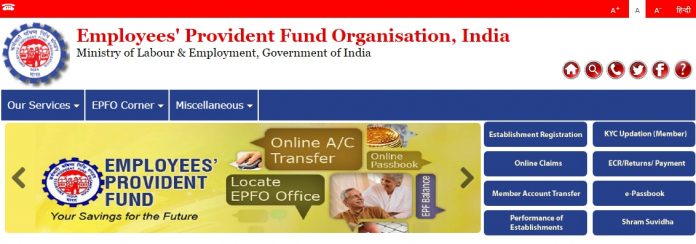The agenda for lowering the rate of contribution from the present 12 per cent to 10 per cent was considered, in a meeting of the Central Board of Trustees (CBT) and Employees’ Provident Fund (EPF).
The public provident fund body, the Employees’ Provident Fund Organisation (EPFO), may be considering a reduction in the contribution employers and employees make into the provident fund to bring it at par with a few other savings instruments.
An official release shared that with a view to bringing contribution under Employees’ Provident Funds and Miscellaneous Provisions (EPF & MP) Act, 1952 to be paid by employer and employee at par with other savings instruments, such as the National Pension System, Contributory Provident Fund, and so on, an agenda item for lowering the rate of contribution from the present 12 per cent to 10 per cent was deliberated in a meeting of the Central Board of Trustees (CBT) and the Employees’ Provident Fund (EPF).
“However, all employees’ and employers’ representatives and state government representatives were against reducing the rate of contribution from 12 per cent to 10 per cent,” the release stated.
In addition, it also described the details of action taken by EPFO against the defaulting establishments to protect the interest of workers covered under the said Act:
(i) Real time default management system implemented to reduce remittance default by establishments.
(ii) Action under section 7A of EPF & MP Act, 1952 against the defaulting establishments for assessment of dues
(iii) Action under section 14B of the Act for levying of damages for belated deposit of dues
(iv) Action under section 7Q of the Act for levying of interest for belated remittances
(v) Action for recovery as provided under sections 8B to 8G of the Act
(vi) Action under Section 14 of the Act for filing prosecution against the defaulters before the competent court of law.
(vii) Action under Section 406/409 of the Indian Penal Code (IPC) against the employer for non-payment of employees’ share of contribution deducted from the wages/salary of the employees but not deposited in the fund.
The information was given by Bandaru Dattatreya, the Minister of State (IC) for Labour and Employment, in a written reply to a question in Lok Sabha, yesterday.
In addition, EPFO has tied up/entered into an agreement with ten banks to collect EPFO dues and to make payments of Provident Fund (PF) withdrawals, pension and insurance to EPFO beneficiaries.
These banks are, State Bank of India, Punjab National Bank, Indian Bank, Allahabad Bank, Union Bank of India, Bank of Baroda, HDFC Bank, ICICI Bank, Axis Bank and Kotak Mahindra Bank.
The main objective of the multi banking arrangement is to provide more options to the employers to remit the Employees’ Provident Fund (EPF) contribution directly from their bank accounts. This will not only make them cost effective but also ensure real-time transfer of funds through net banking.
In order to provide social security benefits to the workers in the unorganised sector, the Government has enacted the Unorganised Workers’ Social Security Act, 2008. The said Act stipulates formulation of suitable welfare schemes for unorganised workers on matters relating to: (i) life and disability cover, (ii) health and maternity benefits, (iii) old age protection and (iv) any other benefit as may be determined by the Central Government through the National Social Security Board. In this regard, various schemes have been formulated by the line ministries at the Centre to provide social security cover to the unorganised workers.
Value our content... contribute towards our growth. Even a small contribution a month would be of great help for us.
Since eight years, we have been serving the industry through daily news and stories. Our content is free for all and we plan to keep it that way.
Support HRKatha. Pay Here (All it takes is a minute)





































Agree & also taken the action who are not covered the employees in this scheme.